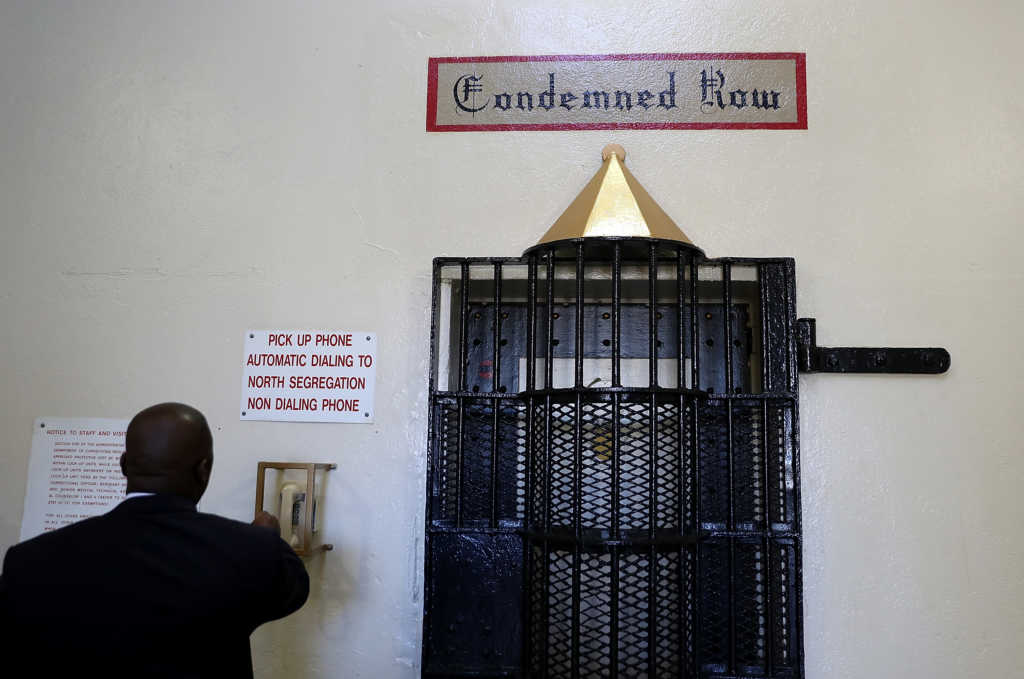The Supreme Court had decided to let Alabama State execute a Muslim prisoner after his lawyers lodged a petition to allow an Imam in the death chamber. Dominique Ray, 42, was executed by lethal injection on Thursday after being convicted over the 1995 rape and murder of 15-year-old Tiffany Harville.
Supreme Court Blocks Louisiana Abortion Law, Kavanaugh Issues Dissent
Ray had claimed he was being discriminated against by the state after officials stated he would not be permitted the presence of an Imam during the execution. Attorneys for the state fired back, saying that only prison employees are allowed in the chamber for security reasons. The issue being, of course, that traditional Christian prison chaplains can come under the umbrella of “prison employees.” As a result, Ray believed he was falling victim to a double-standard – something that the Alabama Department of Correction vehemently denied.
As a result of the controversy caused by Ray’s petition, court records indicate that the State of Alabama has now altered its lethal injection protocol, banning all spiritual advisers, including Christian prison chaplains, from the execution chamber.
“To accommodate Ray’s stated beliefs and the Establishment Clause, the ADOC has amended its protocol and will no longer allow the prison chaplain, or any other spiritual adviser, in the execution chamber,” Alabama state in its SCOTUS brief, according to The Montgomery Advertiser.
“Like any other inmate, Ray has been and will be given opportunities to speak to his spiritual adviser, including up the moment that he is taken to the chamber. His imam will be allowed to be present, if Ray wishes, albeit in the adjacent viewing room.”
NEW: Supreme Court on 5-4 vote allows Alabama to execute Muslim man who wanted his imam to attend to him
— Lawrence Hurley (@lawrencehurley) February 8, 2019
Yusef Maisonet, the Imam in question, had visited Ray on Wednesday and Thursday, and was indeed present in the witness room during the execution. According to the Independent, state officials also noted that there was no Christian chaplain present for the lethal injection.
On Wednesday, the 11th U.S. Circuit Court of Appeals stayed the execution on account of Ray’s request, but the Supreme Court subsequently turned this over and allowed the punishment to be carried out. The justices cited the fact that Ray did not issue the complaint until Jan. 28 as a reason for their decision.
Justice Elena Kagan said that the dissenting justices believed the final decision was “profoundly wrong.”
In a statement, Alabama Attorney General Steve Marshall took a very different view, declaring that justice had finally been served.
“For 20 years, Dominique Ray has successfully eluded execution for the barbaric murder of a 15-year-old Selma girl. …Tonight, Ray’s long-delayed appointment with justice is finally met,” he said, according to Fox News.
Upon being asked if he had any final words, the inmate recited an Islamic statement of his faith in Arabic.
What else did Ray’s legal team argue?
Ray’s defense team highlighted other issues in its bid to achieve a stay. They claimed to be deprived of information relating to the mental health of the convicted murderer who testified against their client, which resulted in his death sentence. Marcus Owden, who was involved in the heinous rape and murder, confessed to his crimes and implicated Ray as the one who slit Harville’s throat.
Owden, who is serving a life sentence without the possibility of parole, reportedly suffers from schizophrenia and delusions.
“He was a son, a father, a brother. He wanted equal treatment in his last moments,” said one of Ray’s attorneys, Spencer Hahn.
In response to news of the Supreme Court decision and subsequent execution, Christian author and activist Shane Claiborne outlined his objections on Twitter.
“As a Christian I find both the death penalty & religious discrimination profoundly evil and offensive,” Claiborne wrote. “Tonight is a sad night for Alabama and for SCOTUS… Christians doing such un-Christ-like things. The Bible Belt is the death Belt. Help, us Lord.”
The recommended the death penalty for Ray was determined by an 11 to one vote. His execution was Alabama’s first of 2019.



